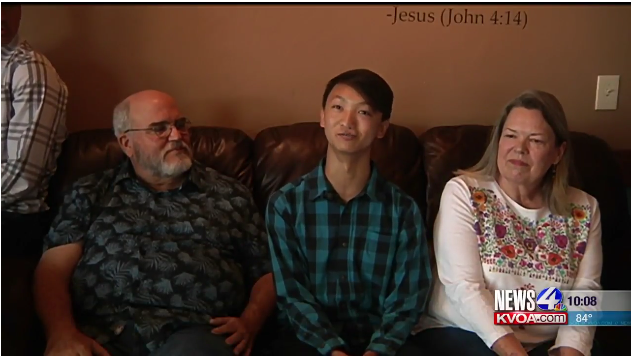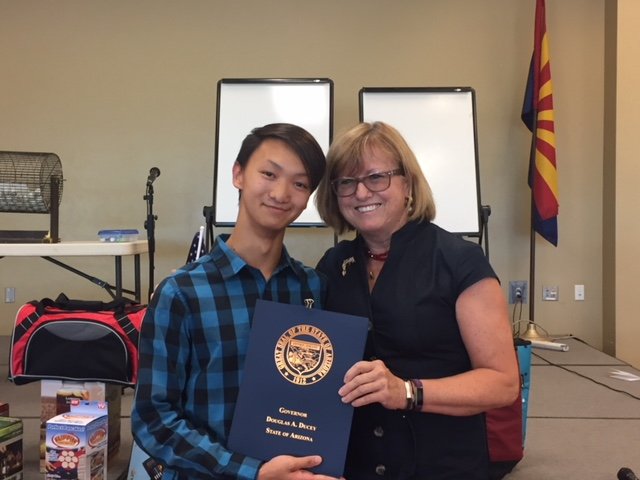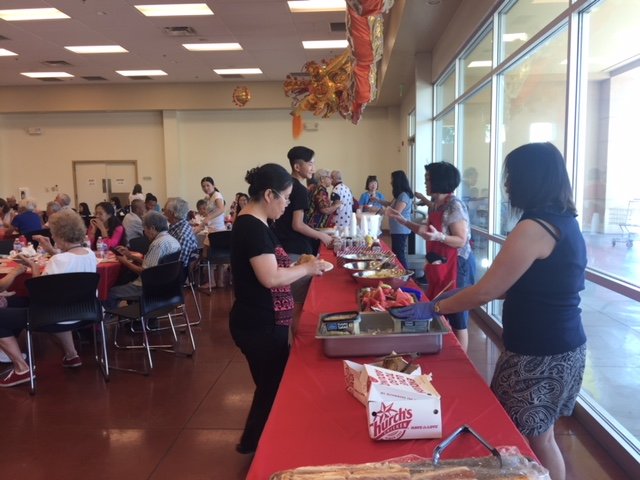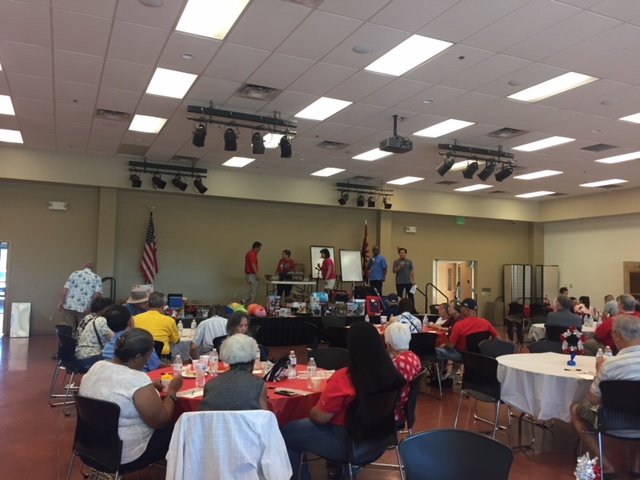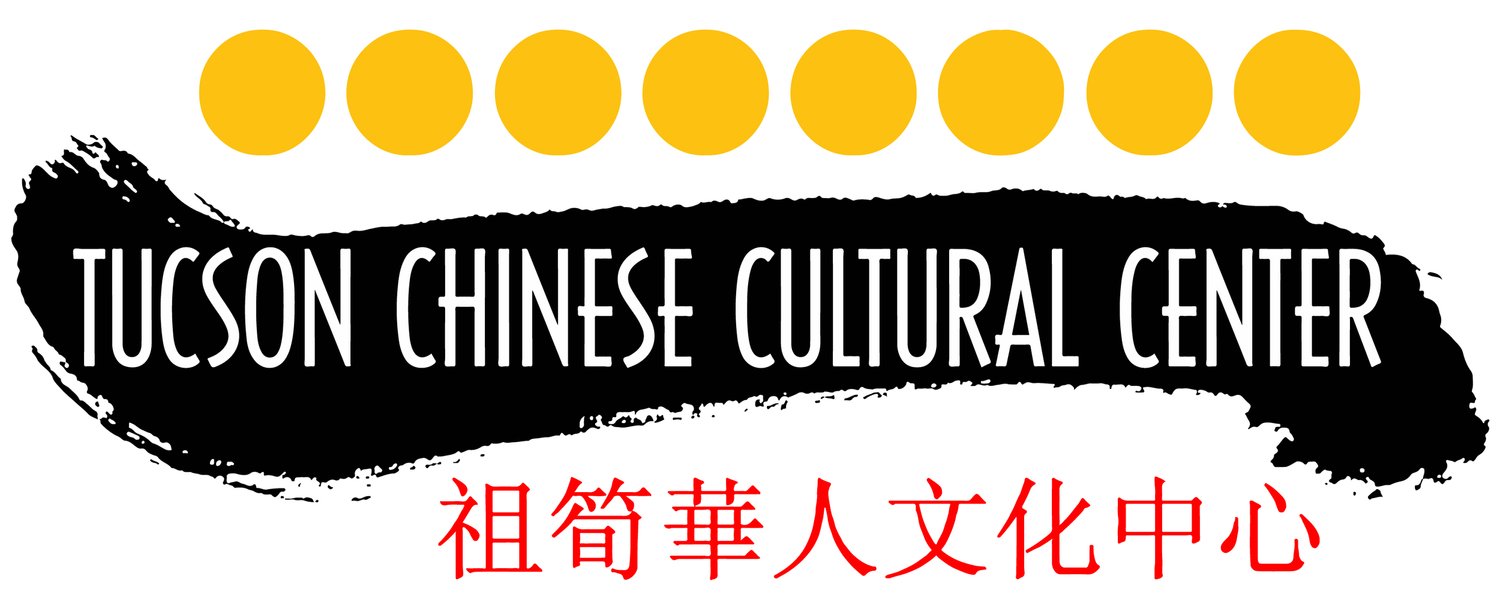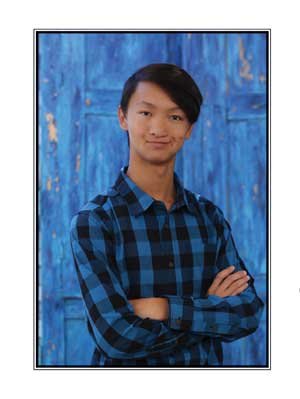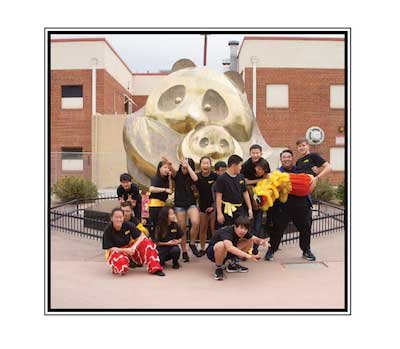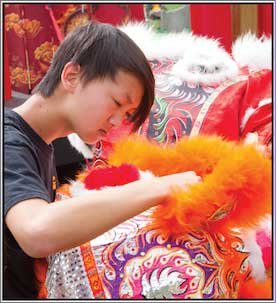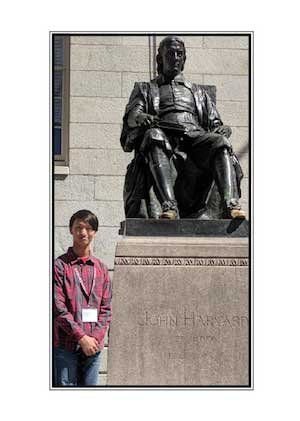From a Chinese orphanage to a full ride at Harvard
Full name: Luke Daniel Minmin Sorensen
Age: 17
Born: Xi’an, Shaanxi province
Adopted: July 7, 2003
Luke Sorensen is leaving the TCCC’s lion dance team, of which he’s been an active member since he was 9 years old. But he has a good reason: He’s heading east with a full-ride scholarship to Harvard University. Luke was adopted at age 3 from an orphanage in Xi’an and recently graduated from Marana High School as valedictorian. His high school career was a blur of college-prep activities including president of Marana High’s Alpha Theta math honor society, president of its academic decathlon, treasurer of the National Honor Society and member of the key club. He played viola in the school’s chamber orchestra, was named most valuable player on the school’s varsity swim team and interned for two summers at Springs Church, which his family attends. But Luke, along with five of his siblings who also were adopted from China, always made lion dance a priority.
How did your family get into lion dance? How old were you?
My family began lion dancing when I was about nine years old. We were involved with the Southern Arizona Families with Children from China program and attended a Chinese New Year celebration at the Tucson Chinese Cultural Center. Susan mentioned the lion dance program and we saw it as a good opportunity to keep in touch with Chinese culture as an entire family.
How has the lion dance program changed during your time on the team?
Over the years, the lion dance program increased in size and expanded to include more aspects of the traditional dance. We started performing with northern lions a few years ago, which entailed a completely different style of dance. Alongside that change, we began performing more dangerous stunts, including more complicated jumps and the use of benches. Jackson and Nolan Veneklasen recently began using Kung Fu in our large performances, which I don’t recall the program doing before. The two also became leaders within the team, teaching and mentoring the younger pupils as well as us. Faces have also changed as members joined and left.
What is your favorite part of being on the team?
My favorite part of being on the team is that I can connect with my heritage while bringing happiness to others. Seeing a child smile at a performance never gets old. Knowing that they’re smiling due to the art that the team created makes every performance completely worthwhile. Simultaneously, I get to experience a tradition that is a staple of Chinese culture, making me appreciative of the customs that I would have otherwise forgotten.
What is the toughest part?
The toughest part of lion dance is the mental strength that we need to have. It often takes physical strength to accomplish the moves that performers pull off, but learning those acts are difficult. It is easy to give up when we still are unable to do a trick by the tenth or twentieth attempt. In those moments, it is sometimes tough to push on, setting aside frustrations and emotions, in order to eventually get it right.
What made you stick with it all the way through high school?
I stuck with lion dance because I genuinely enjoyed it. It was something that I looked forward to every other week because it was unique and the costumes themselves were beautiful. Even when the routines were difficult or exasperating, I’m not one to quit. I saw the challenges as opportunities to grow and improve myself.
How did you balance school work and practice, especially during the busy Chinese New Year season?
There were times when I definitely sacrificed sleep in order to do both school and lion dance. Essentially, I always possessed the mindset that I would do everything to the best of my ability. Whereas some people may stop working on projects when they are ‘good enough’, I strove to complete them thoroughly and well. My life wasn’t really much of a balancing act. Instead, I filled my time up entirely so that I would adapt to always being busy. It eventually became normal.
What did lion dance teach you that has nothing to do with lion dance?
Lion dance taught me the importance of striving to understand other cultures. From the surface, lion dance is definitely an awe-inspiring spectacle, but from that superficial understanding, the audience doesn’t often understand why we do the lion dance, as well as what the colors, lettuce, and oranges symbolize. This isn’t unique to lion dance. Countless other cultures have traditions that seem ‘weird’ or ‘cool’ to us, but without delving into understanding what those traditions signify, we lose some of their meanings.
What will you miss most about lion dance?
I’ll miss the people that I interacted with on the team and at the cultural center. I made some great memories with friends on the team, from events like the Tucson Rodeo Parade to Autumn Moon Festivals and Dragon Boat races. The lion dance team is a family and one that I’ll miss dearly.
Do you hope to stay involved in Chinese culture in college?
Yes! Harvard has multiple Chinese student associations that organize social events throughout the year that I plan on attending. I might also join the Asian American Dance Troupe, which expressed interest in possibly arranging a lion dance performance sometime in the future.
What was it like growing up in such a large family?
There is never a dull moment, or a quiet one. With six siblings in the home, we can always find some way to entertain ourselves. By having a large family, I also learned how to interact with people with different points of view. None of my siblings have the same personality. They each have different opinions and thoughts. Growing up alongside them, I was forced to always consider different perspectives to every question or decision. I’m more understanding of others because of that.
What was it like adjusting to new siblings as they arrive?
It wasn’t always easy. Whenever we adopted a new sibling, there were almost always difficulties as they adjusted to their new family, new language, and new way of life. At times there were tears and wishes to go back to China, but gradually, they get used to the change and discover the opportunities that they now have. I was always as supportive as I could be. After a while, we come to enjoy the new family that we have. The new faces add a bit more color to our lives.
Were you nervous about applying to schools like Harvard? Were you confident you’d get in?
I don’t think I was ever nervous. I applied to schools like Harvard with the mentality that I had a chance of being accepted, but that I probably wouldn’t. I was never confident that I would get in. The thing about schools like Harvard is that regardless of how incredible you might be, there are countless other students who are just as impressive. Harvard had 42,749 students apply for only 1,962 spots. Of those applicants, thousands of them were valedictorians. Even when elite colleges look at just the applicants that are academically stellar, they are still left with far too many to accept. At that point, my unique attributes, beyond my academics, got me in. Students who pursue their passions and are more than just grades are the ones that stand out and are accepted. I must have stood out.
How do you think your lion dance experience will help you in college?
I have a story that no one else can tell. Few students, if any, participated in lion dance or were as deeply involved in Chinese culture as I was. In college, I’ll have a unique perspective that I can use to enrich discussions in and out of the classroom.
Congratulations
Luke Sorenson
Featured on KVOA
“A Marana High School graduate is overcoming life’s obstacles and is attending Harvard University in the fall with a full ride scholarship.
Luke Sorensen had to undergo several surgeries at the start of his life to fix his cleft lip. He was adopted at age three by one Tucson family who showed him that no matter the obstacle one can overcome. Now he’s hoping in sharing his story of success others will continue to strive for more.
“Well, I was abandoned when I was a month old in Xi’an, China. And so for the first three years of my life, I lived in an orphanage there called the Pink Castle,” Luke Sorensen said.
The Sorensen family whose adopted six children from China found a picture of baby Luke pointing at the camera.
“I turned around, looked at him and there he was pointing his little finger and the wisdom…There was just kinda a light around Luke. And I said yea that kid has some potential,” Mark Sorensen said.
Potential would be an understatement as Luke graduated as valedictorian of his class and got a full ride scholarship to Harvard University.
“I’m definitely excited it’s a place where I’ll have countless opportunities to grow and learn and make the most of the education that I can,” Luke Sorensen said.
Luke plans to pursue a career in software engineering. News 4 Tucson asked what advice he has for fellow students.
“By pursuing your passions you stand out more and your also happier as a human being,” Luke Sorensen said.
Luke has earned several scholarships that total over $67,000 a year to cover his school expenses at Harvard.”
SOURCE: http://www.kvoa.com/story/38337466/marana-high-student-gets-full-ride-to-harvard
